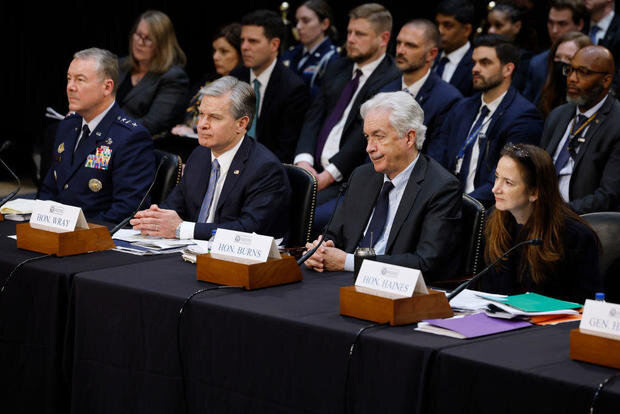Palestinian resistance will send Netanyahu to the dustbin of history

TEHRAN - Since Israel launched brutal onslaught on the Gaza Strip in early October, Prime Minister Benjamin Netanyahu has repeatedly vowed to continue the war until “total victory” over Hamas.
But the Israeli premier’s goal has so far remained elusive amid growing support for resistance not only in the Palestinian territories, but also across the globe.
The Israeli army has also suffered heavy casualties since it launched a ground offensive in Gaza late October. Nearly 250 Israeli troops have been killed in the ground battles with resistance groups since then.
On Monday, the U.S. intelligence community dropped a bombshell admitting that Israel will fail to achieve its purported aim of destroying Hamas.
“Israel probably will face lingering armed resistance from Hamas for years to come, and the military will struggle to neutralize Hamas’s underground infrastructure,” an annual assessment by the Office of the Director of National Intelligence (ODNI) revealed on Monday.
The ODNI assessment also said Hamas will be able to “regain strength” and “surprise Israeli forces” in the years to come.
In mid-February, a document drawn up by the Israeli military’s intelligence also acknowledged that even if Israel dismantles Hamas’s organized military capabilities, the resistance group will continue to operate in Gaza.
Israel’s Western allies have also cast doubt on Netanyahu’s pledge to defeat Hamas.
Nearly a month ago, EU foreign affairs chief Josep Borrell warned Israel that it can’t defeat Hamas by military means.
West Asia escalation
The 40-page ODNI assessment also said growing attacks against American and Israeli bases and their interests in West Asia over the past months are rooted in Israel’s war on Gaza.
It warned that resistance groups in Iraq will continue attacks on U.S. forces in Iraq and Syria, and that further military operations by Yemen’s Ansarullah in the Red Sea will “create a real risk of broader escalation.”
Washington’s backing for Israel’s genocidal war on Gaza has given rise to anti-U.S. sentiment in the region. Regional resistance groups have carried out scores of attacks against American bases since the start of the Gaza war.
The Ansarullah movement, for its part, has hit Israeli-linked ships in the Red Sea to express solidarity with the Palestinians in Gaza. The movement has vowed to continue the attacks until Israel brings an end to its brutal onslaught.
Ansarullah has also targeted British and American warships in the Red Sea. This has been in retaliation for the strikes that the U.S. and the UK carry out against Yemen in response to Ansarullah’s attacks on Israeli-linked ships in the Red Sea.
Divisions in Israel
The U.S. intelligence report further turned the spotlight on widening gaps in Israel over Netanyahu’s handling of the Gaz war.
“Distrust of Netanyahu’s ability to rule has deepened and broadened across the public from its already high levels before the war, and we expect large protests demanding his resignation and new elections,” the report said.
Netanyahu remains under immense pressure within Israel for his regime’s failure to predict or forestall the October 7 attack that was carried out by the Hamas resistance movement.
Following the Hamas military operation, which shattered the image of Israel’s invincibility, the Netanyahu regime launched the war on the Gaza Strip.
More than 1,100 people were killed in the Hamas raid and roughly 250 were taken captive. Over 100 of the captives were released in a November deal.
Israel’s retaliatory attacks have leveled Gaza and so far left more than 31,000 people dead.
Public polling in Israel has suggested that many Israelis question whether Netanyahu’s military campaign is the best way to recover the remaining captives.
Over the past months, Israelis have held regular protests calling for a ceasefire, the return of captives, Netanyahu’s resignation and new elections.
Power of resistance
Hamas has repeatedly stressed that the Palestinian resistance carried out the October 7 attack independently.
The U.S. intelligence community acknowledged that claims over Iran’s role in the Hamas attack are baseless.
The ODNI assessment said the U.S. administration believes “that Iranian leaders did not orchestrate nor had foreknowledge of the Hamas attack against Israel” on October 7.
The report was finalized in February but declassified as intelligence chiefs testified in the Senate on Monday.
U.S. Director of National Intelligence Avril Haines, along with CIA director William Burns, FBI director Christopher Wray, the State Department's Bureau of Intelligence and Research chief Brett Holmgren, National Security Agency director Gen. Timothy Haugh and Lt. Gen. Jeffrey Kruse of the Pentagon's Defense Intelligence Agency testified before the Senate Intelligence Committee.
Haines raised the alarm about the global impacts of Israel’s war on Gaza.
“The crisis in Gaza is a stark example of how regional developments have the potential of broader and even global implications,” he warned.
Regional leaders have repeatedly warned that Israel’s war on Gaza could spill over into the entire West Asia region. They have called on the U.S. to exert pressure on Israel to stop its war of genocide on Gaza.
As the ODNI assessment acknowledged, Israel will fail to bring Hamas to its knees. The acknowledgment indicates that the era of hit-and-run has ended. The resistance in Gaza currently has the upper hand and it will be able to bring an end to Netanyahu’s political life.
Culled from Tehran Times

